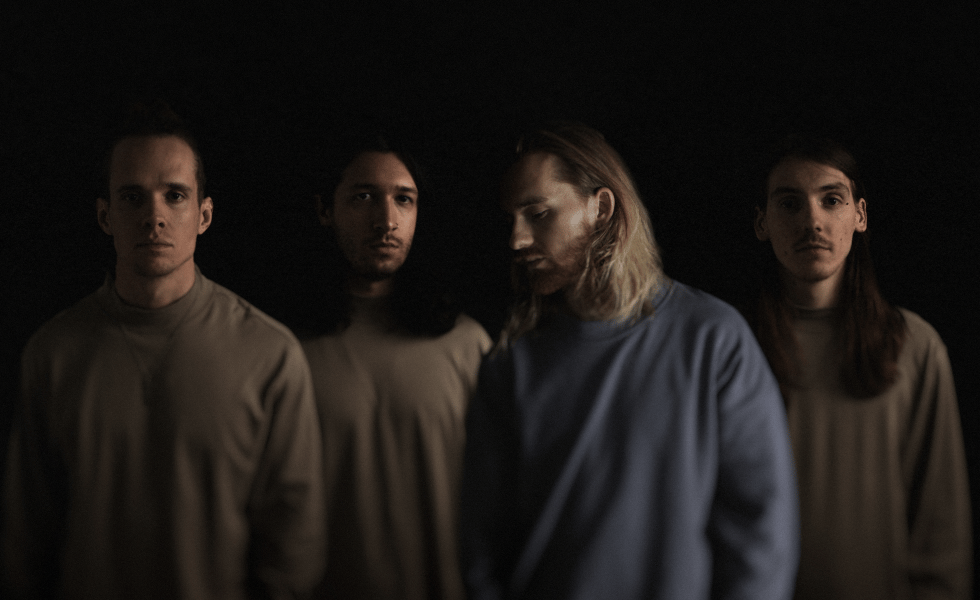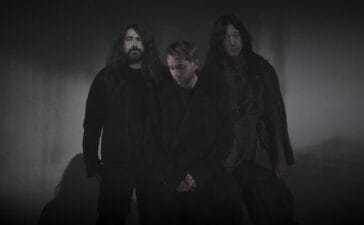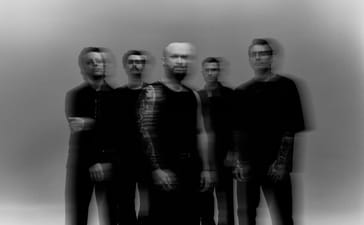Content warning: This article discusses drug addiction, and the impacts that drugs have on addicted individuals and their families, in intimate detail. The content in this article may be considered triggering.
If you or anyone you know are suffering from addiction, help is available. You can contact LifeLine 24/7 on 13 11 14.
“I want to talk about it with care and with compassion, and understanding – I want to approach it the right way.”
At this point, BLUNT was more than halfway through our allotted interview time with Invent Animate drummer/guitarist Trey Celaya. Granted, it’s unusual for the conversation’s lede to appear this late in the game. But this conversation – and the greater one surrounding their impending EP, The Sun Sleeps, As If It Never Was – are far from usual.
Celaya doesn’t mince words when discussing the EP’s background: his personal struggles with addiction involving “someone in my family who had been hiding a drug addiction”. He tells us: “They were on the way to meet us. We were actually in a hurricane evacuation, which happens a lot in Texas. We were out of town, the family member was supposed to come meet us, and we got a call that they had been arrested while they were en route. And they were separated from their child, they had actually abandoned the child in a gas station parking lot. They were gone for over an hour, up to like two hours, and left the kid in a hot car while they were shooting up drugs.”
Usually, this is when the story stops – at least for those of us outside the immediate family circle. After all this is a deeply personal matter. But rather than internalise, Celaya brought this story to the forefront during Invent Animate’s writing sessions. “I needed to work through it and process it,” he says, “Because addiction has unfortunately been such a prevalent theme in my family and in my life.”
The Sun Sleeps, As If It Never Was is a sprawling EP that manages to not just score, but explore the various perspective of addiction across just three tracks. The first of those is Invent Animate’s debut single, ‘The Sun Sleeps’.
“This song is part of a bigger picture,” Celaya explains of the project – “It’s just one perspective, if you will. With that in mind, knowing that there’s more to the story, the [EP’s] title is a distillation of the big picture into just creating some imagery. Invent has always been a big fan of natural imagery, but [with this EP we were] trying to capture how magical some of that can be – just this surreal nature of reality. We like that tension and that mystery, and I feel like a lot of life is explored and experienced in those gray areas. This is a bit of the same thing. The big picture has a yin and yang vibe, and this song would be more of the yin.”
“It’s not my place to say, ‘It’s going to be okay one day and you’re going to get through it’…“
Ceyala further breaks the EP down by explaining that the three perspectives addressed across it include that of his parents, “how someone that you know and love and trust can seemingly be possessed,” the perspective of the sufferer “as someone who’s entrenched in addiction and how warped that can feel”, and also the perspective of the child involved in the story: “I wanted to explore the child’s perspective as someone who has this more innocent outlook on life, that all of a sudden is getting taken away from them. The child is being forced to deal with these ugly realities that life is not innocent.”
Such makes The Sun Sleeps, As If It Never Was a cohesive, encompassing release that puts itself at the coalface of addiction. It’s also worth noting the story’s open ending, which wraps not with a bang, but a whisper. Ceyala explains this was part of the bigger picture: “There’s not much a resolve, lyrically, either. It’s just kind of laying it out. I purposely did that.”
“I didn’t think there was [an ending] at that point,” he admits. “I think it’s still something the family is working through. There’s still a process of recovery and, it’s something that the child is going to have to deal with for years and years. So it didn’t make sense to have it be all sunshine and rainbows at the end.”
The open ending allows listeners who resonate with the overarching narrative to embed themselves in the story – to take the useable lessons expunged prior, and use them to make their own happy ending. After all, Ceyala understands as well as anyone that addiction doesn’t get cured, it gets controlled. “It’s not my place to say, ‘It’s going to be okay one day and you’re going to get through it,'” he explains. “Or you’re young, you’re resilient. That’s not anyone’s place, because comparative suffering doesn’t work. Everyone suffers and everyone deals with things relative to their worldview, and there are all kinds of factors about how they were raised to consider.”
As Ceyala makes explicit: “The emotions are real despite your experience.”
>> KEEP READING: Drown This City: Finding the colour in trauma <<
The Sun Sleeps, As If It Never Was is out September 23rd via UNFD











